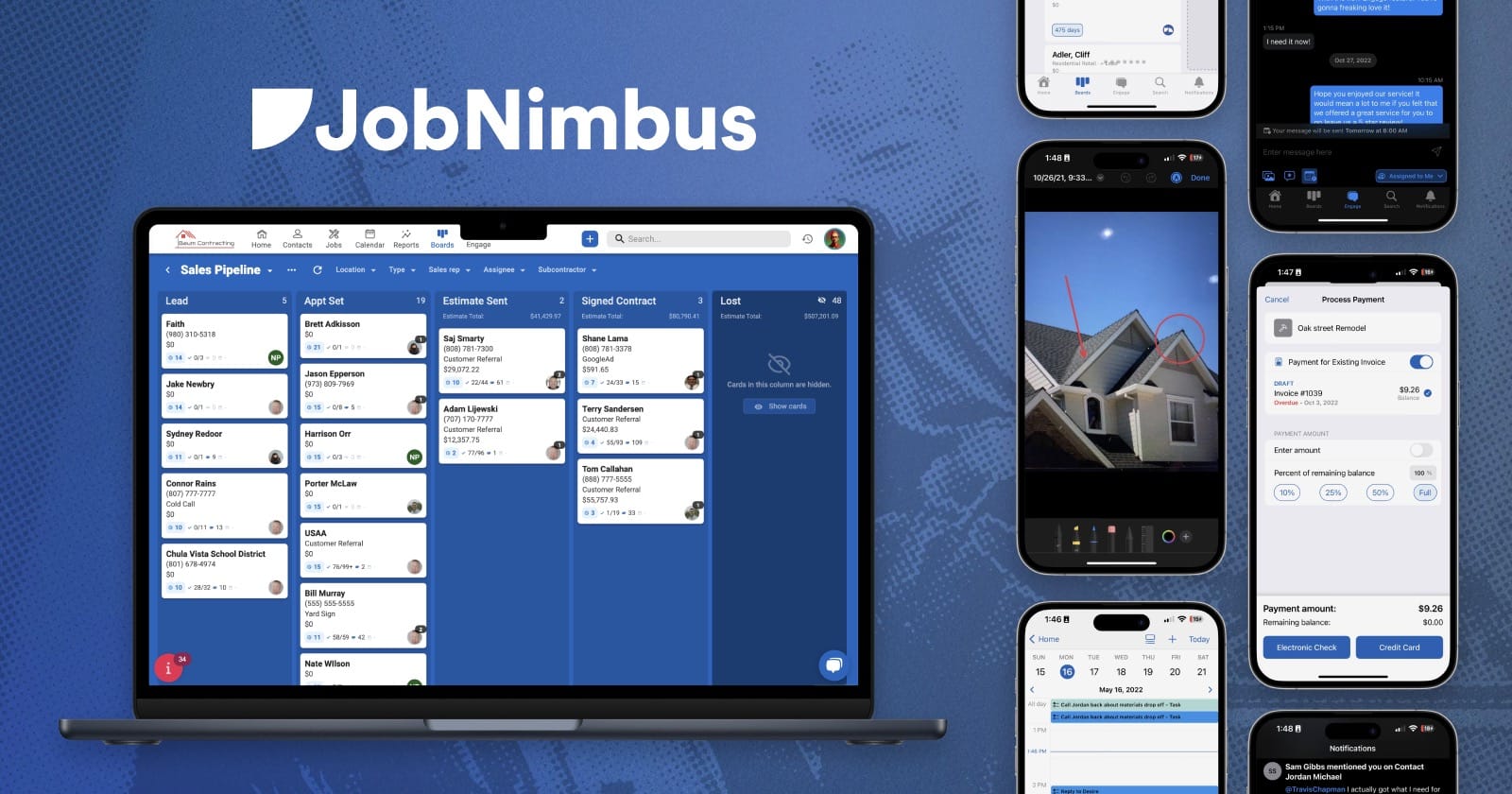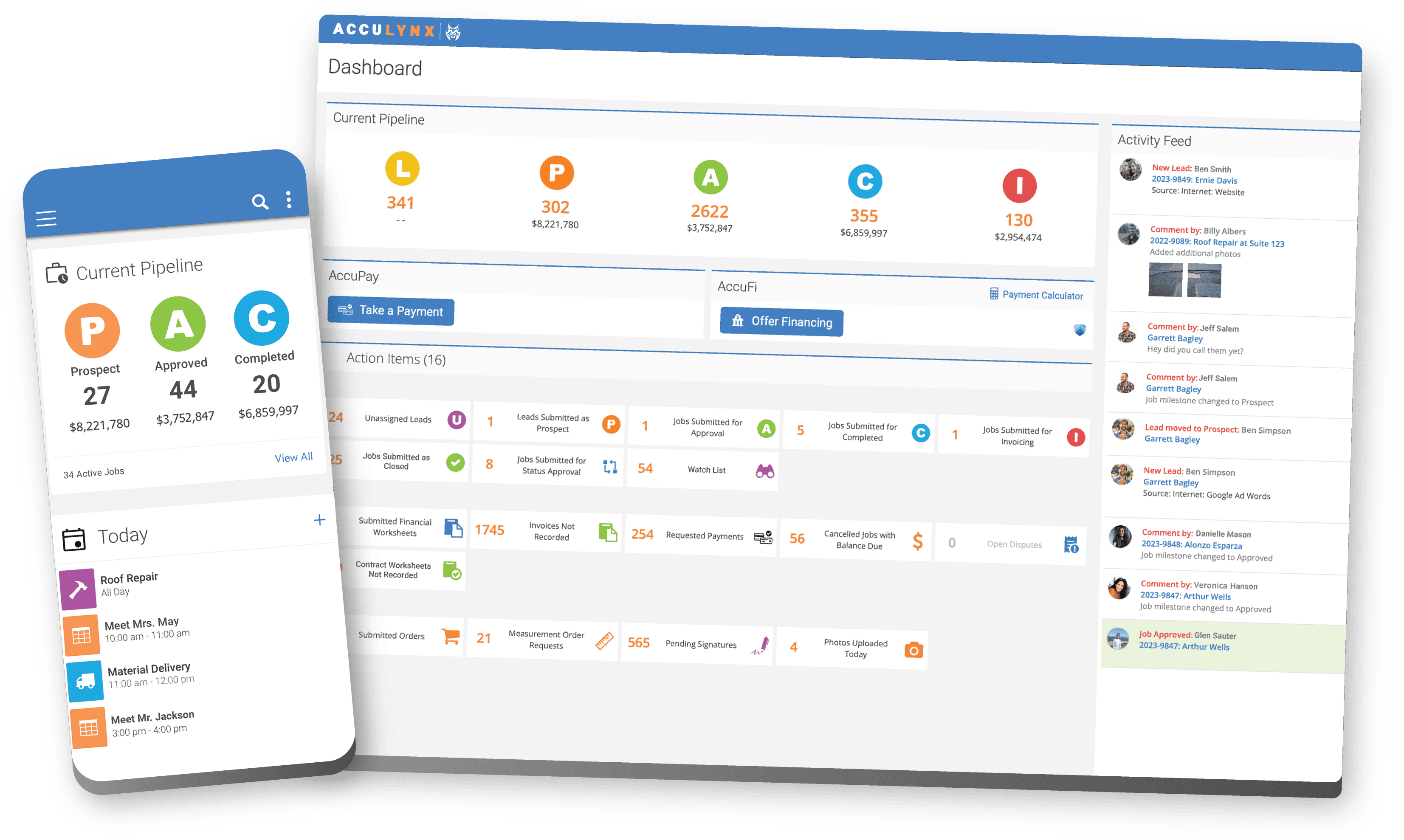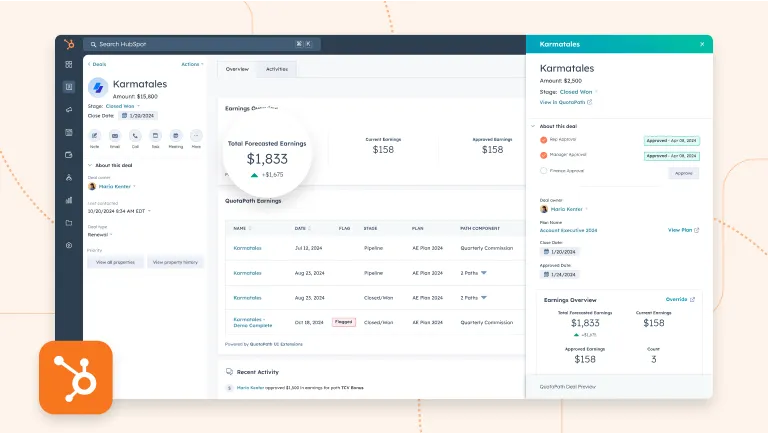Top 5 CRM Systems for Commission Tracking in Roofing

If You Can’t Track It Right, You Can’t Pay It Right
Let’s face it—roofing sales runs on commissions. But when installs get delayed, paperwork gets messy, or CRM data is off, your reps lose trust fast.
The solution? A CRM system that tracks commissions accurately and transparently from lead to install to payout.
"More roofing reps quit over commission disputes than bad leads."
In this day and age, the best roofing companies are using CRMs not just for managing leads—but for driving trust, retention, and clarity in rep compensation.
This guide compares the top CRMs built (or customizable) for commission tracking in the roofing industry.
What You’ll Learn:
- The 5 best CRMs for roofing commission tracking
- Key features to look for in a CRM
- Pros, cons, and ideal use cases for each system
- How better tracking can boost rep performance
- Tips for switching or optimizing your CRM setup
What Makes a CRM Great for Commission Tracking?
Looking back at my years managing data, and eventually stepping into the roofing sales side, I can tell you that most CRMs absolutely suck at commission tracking.
And trust me, nothing kills team morale faster than reps staring at their paystub wondering which deals actually paid out.
The game-changer? Real-time job status updates. Your reps need to see when a deal moves from "signed" to "in production" to "complete" because that's when commissions typically trigger.
I've seen too many disputes over deals that were marked complete three months after they should've been.
Custom fields are non-negotiable. You need spots for commission percentages, draw amounts, team splits, and those random bonuses that always pop up.
Standard CRM fields just don't cut it - every company's comp plan is different.
Here's where most businesses mess up: they pick a CRM that doesn't talk to their accounting software.
QuickBooks integration isn't optional anymore. Neither is payroll system connectivity. Manual data entry leads to errors, and errors lead to angry salespeople.
Dashboard visibility matters huge. Reps should see their pipeline value and projected commissions in real-time. Managers need rollup views to track team performance.
And please, make it mobile-friendly - your reps aren't chained to desks.
Finally, audit trails save relationships. When commission disputes arise (and they will), you need clear documentation showing exactly when deals progressed and commission calculations changed.

#1 – JobNimbus (Best All-Around for Roofing Teams)
JobNimbus keeps coming up as the gold standard. I used it briefly after our AccuLynx days, but honestly we outgrew it pretty quick and moved on.
Still, from what I've observed in the industry and through my research, it's probably the best all-around solution for most roofing teams.
The biggest win is having everything under one roof - sales pipeline, production schedules, and commission calculations all talking to each other.
When a job moves from "contract signed" to "materials delivered" to "installation complete," the commission workflow fires automatically. No manual updates needed.
Their workflow automations are where JobNimbus really shines.
You can set up triggers so that when an install photo gets uploaded, it automatically marks the job ready for commission payout. Pretty slick stuff.
The QuickBooks integration is solid, and the Zapier connectivity opens up tons of possibilities for connecting other tools.
Most roofing companies I know are running at least 3-4 different software platforms, so those integrations matter.
Rep reporting dashboards give your sales team visibility into their earnings without bugging the office manager every week. Trust me, that saves everyone headaches.
Main limitation? If you're doing high volume or have complex commission structures, you might hit some walls.
But for most roofing operations under $10M annually, it handles commission tracking beautifully.
Pros: Built for roofers, strong workflow tools
Cons: Takes time to fully customize
Best for: Roofing companies with 5–50 reps

#2 – AccuLynx (Best Built-In Commission Tools)
I'll be honest - AccuLynx was the first CRM where commission tracking actually made sense to me.
What sets AccuLynx apart is how everything connects. The commission tracking isn't some bolted-on feature - it's baked right into the platform.
When a roofing job moves from "material ordered" to "installation complete," the system automatically flags it for commission payout. No more guessing games.
Their visual dashboards are pretty slick too. Reps can see their job pipeline, pending payouts, and year-to-date performance without digging through spreadsheets.
Managers get rollup views showing team metrics and commission liability - super helpful for cash flow planning.
The custom job cost fields really shine for contractors tracking material costs and labor margins. You can set commission percentages based on actual job profitability instead of just revenue.
Smart move.
Here's my favorite feature: automated alerts when installs are completed and ready for payout. No more manually checking job statuses or missing commission cycles.
The system literally tells you when money's ready to be paid.
One major upside. It's built specifically for contractors, so other industries might find it too specialized. But for roofing, siding, and construction companies? It's solid gold.
Pros: Easy to set up and use; purpose-built for roofing
Cons: Less flexibility for advanced commission plans
Best for: Retail and storm-focused roofing companies

#3 – Salesforce + Roofing Plug-ins (Best for Scaling)
Salesforce is where you graduate when spreadsheets and basic CRMs just can't handle your commission complexity anymore. This is when companies hit that 50+ rep mark and suddenly realize their simple percentage-based payouts aren't cutting it.
The power here is in handling those nightmare commission structures that keep growing companies up at night. Multi-tier overrides, team bonuses based on crew performance, geographic splits - Salesforce can calculate it all.
But here's the catch: you're gonna need someone who actually knows what they're doing to set it up.
The roofing plug-ins available through the AppExchange are game-changers for scaling operations.
They handle everything from material takeoffs to production scheduling, and the commission modules tie right into your payroll systems. No more manual exports or CSV uploads.
For multi-location companies, the reporting capabilities are insane. You can slice commission data by region, rep, product line, or whatever else your executives dream up. The dashboards actually make sense of all that data.
But let's be real - this isn't plug-and-play software. You need dedicated admin support, probably some custom development, and the budget to match.
Smaller companies often get overwhelmed by the complexity.
If you're doing $20M+ annually or managing multiple locations, though? The investment pays off. Just don't expect your office manager to figure it out over the weekend.
Pros: Limitless customization, enterprise-ready
Cons: Expensive, overkill for smaller teams
Best for: Large roofing companies or franchises

#4 – HubSpot + Commission Add-Ons (Best for Simplicity)
HubSpot ended up being our final stop after years of CRM hopping, and honestly, it was the right call for keeping things simple. The interface is clean enough that even our most tech-resistant reps actually use it without complaining.
Out of the box, HubSpot's commission tracking is pretty basic. But that's where the add-ons come in clutch.
We experimented with QuotaPath and Everstage - both plug right into your deal pipeline and automatically calculate payouts based on stage movements. No more manually updating spreadsheets when deals close.
The real-time earnings projections are what sold our team. Reps can log in and see exactly how much they're projected to make this month based on their current pipeline.
That visibility keeps everyone motivated and reduces those "when do I get paid?" questions.
For companies doing both solar and roofing, HubSpot handles multiple product lines really well. You can set different commission rates by service type, and the reporting breaks everything down clearly.
The integrations are where it gets fun - Gmail, Slack, Zapier, Stripe all connect seamlessly. Our accounting team loves the Stripe integration because it automatically matches payments to closed deals.
Biggest downside? The add-ons cost extra, so your monthly bill creeps up.
But compared to building custom solutions or managing commission disputes, it's money well spent. Simple systems that actually work beat complex ones that don't.
Pros: Simple UI, scalable with add-ons
Cons: Not roofing-native, requires more setup
Best for: Tech-savvy teams or hybrid solar/roofing sales

#5 – Monday.com + Custom Build (Best for Full Control)
Monday.com is basically the LEGO blocks of CRM systems - you build exactly what you need, nothing more.
I haven't personally used it for commission tracking, but I've seen plenty of roofing companies create some pretty impressive setups with their platform.
The visual project boards are perfect for tracking jobs from lead to completion. You can set up columns for commission rates, splits, and payout status that update automatically as jobs move through your pipeline.
The best part? Everything's color-coded, so you can spot bottlenecks instantly.
Building your own commission calculator right in a board is genius. Set up formulas that calculate payouts based on job value, completion status, and rep performance.
When someone marks a job "installed," it automatically triggers the commission calculation. No external tools needed.
The automation possibilities are endless. Job status changes can trigger Slack notifications, update Google Sheets, or even send invoice reminders through Zapier.
I've heard of companies using Make.com to connect Monday with their accounting software for seamless payout processing.
Custom dashboards let you create different views for owners (P&L impact), operations (job status), and sales teams (earnings tracking). Everyone sees what they need without getting overwhelmed.
The downside? You're basically building your own CRM from scratch. Great if you have the time and technical skills, but can get messy fast if you don't plan it right.
Pros: Highly customizable, low-code automation
Cons: Not plug-and-play, needs time to configure
Best for: Companies with in-house ops/admin talent
Key CRM Features Roofing Companies Need
There are some non-negotiables that separate the pros from the amateurs. Miss any of these features and you're setting yourself up for payroll headaches.
Commission rates need flexibility - both per rep AND per job. Your top closer might earn 8% while new reps start at 5%. But that storm damage job with thin margins? Maybe everyone gets 4% on that one.
Your CRM needs to handle both scenarios without breaking a sweat.
Payment triggers are where most systems fall apart. "Job complete" sounds simple until you realize some reps want paid at install, others when the check clears, and management wants to hold commissions until final inspection.
Define these triggers upfront or deal with disputes later.
Split commissions are mandatory in roofing. Canvasser gets 2%, closer gets 6%, sales manager gets 1% override. The math gets messy fast, especially with multi-rep deals and team bonuses.
Lead source tagging is pure gold for tracking which marketing channels actually pay off. Storm leads might carry higher commission rates than home shows. Your CRM should tag and track this automatically.
Visibility matters huge - reps, managers, and accounting all need different views of the same data.
And please, make sure everything exports cleanly to Excel. Your payroll company will thank you, and so will your accountant come tax season.
Don’t Let CRM Chaos Steal Your Team’s Trust
Your reps work hard. If they don’t trust how they’re getting paid, they’ll leave—or worse, underperform.
A CRM that tracks commissions clearly, automatically, and fairly is one of the most important systems a roofing company can invest in.
Whether you're a 2-rep storm team or a 50-rep retail beast, pick a system that fits your size and goals—and make sure every rep knows exactly what their next job is worth.